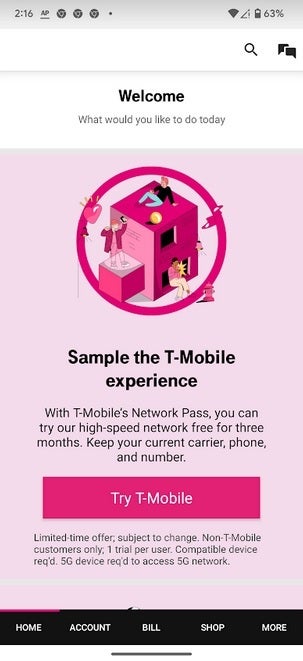Potential T-Mobile customer seeking to “test drive” the service for free is lied to by a company rep

Some wireless providers and even a few MVNOs allow you to take their wireless service out for a spin so that you can “Test drive” it. Usually, you can get 15 to 30 days to see whether a different company will improve your coverage, deliver clearer phone calls, and give you faster 5G (or 4G LTE if that is the case) download data speeds. Some of these “test drives” can be set up through an app.
The cell service turned out to be unsatisfactory and after using about 20 minutes of data, he decided to call T-Mobile to cancel after two days. The T-Mobile employee on this call shocked the consumer by warning that he might receive a prorated bill. She apologized to the consumer explaining that he had been misled by the rep he spoke to on his original call. The consumer resigned himself to the fact that he was lied to and would receive a prorated invoice. But things got even worse when he received the bill three weeks later stating that T-Mobile had not received his payment and therefore his account was sent to collections.


You can legitimately get 3 months of free unlimited T-Mobile service through Network Pass on the carrier’s app. | Image credit-PhoneArena
Unlike what he was told by the female agent he spoke with, the invoice amount was not prorated and he was being asked to pay for a full month of service even though he was first promised that there would be no charge and then told that he might receive a prorated bill. And to top it off, the consumer never received a prorated bill, or any bill for that matter until the collections letter arrived in his mail.
A fellow Redditor posted a suggestion based on his personal experience. After being scammed by a T-Mobile rep who told him that he qualified for a free 5G phone because 5G service was about to launch, he noticed that he was being charged an extra $20 each month toward the $500 price of the new phone he was told that he would receive for free. He got nowhere complaining to T-Mobile so he notified the FCC and was told that by doing so, the carrier would have to respond to the complaint. After submitting his complaint to the FCC, the charge was dropped.
Source link


